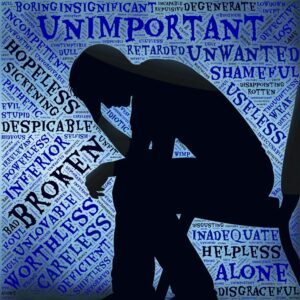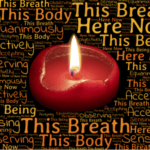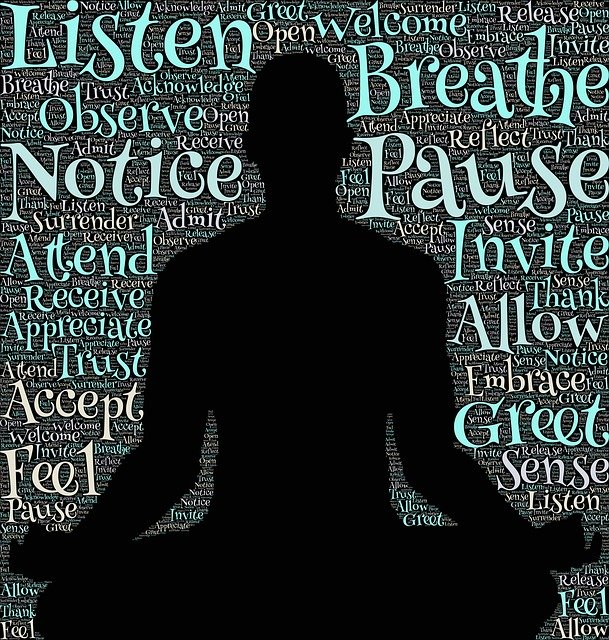I am writing this in the midst of Covid-19 with so many unknowns about the future, more than ever we need strategies for self care and well-being . Our world has changed in ways that we never even imagined. It is hard to stay positive when the news constantly promotes a sense of fear and panic. There are so many things out of our control at this time, we are more vulnerable than ever to fall into a state of anxiety, feel stressed and overwhelmed.
Rather than letting this become an excuse to fall off the path you’e chosen towards recovery and health, the suggestions below will help you focus on some things you can do to feel more in control. Following is a list of ideas on how to stay calm and be more resilient in the face of this current stressor as well as when other life events happen to cause a sense of unease.
1. Sleep
When we are getting less sleep than our body needs we are more vulnerable to stress. We are fatigued, not as clear-headed, more prone to irrational thinking. Most of us need anywhere from 7 to 9 hours nightly. When we can’t fall asleep, tossing and turning looking at the clock, figuring out how much sleep you can get if you fall asleep now, we get even more anxious. Here are a few suggestions if sleep issues are a problem.
- Try to put some structure in your day so you are going to bed and getting up at the same time most days.
- Don’t eat anything for 2 hours before going to bed.
- Turn off all electronics at least 30 minutes before going to bed, have a cup of herbal tea, read a book, do some deep breathing, calm your body and mind before getting into bed.
- Try laying quietly and focusing on the breath, listen to rain or ocean sounds.
- I know you want to stay informed, but no news before bedtime.
Poor sleeping can be a result of stopping a substance or a compulsive behavior, try not to fret about it and know that in time your body will adjust and sleep will come back.
2. Exercise
This is a great way to reduce stress and support your health and immune system. Exercise has been shown to be effective in enhancing your mood and mental state. During exercise your body releases chemicals that improve your mood and make you feel more relaxed.
 Exercise can help keep your mind and judgment skills sharp as you get older. It stimulates the release of proteins and chemicals that positively affect the structure and function of the brain.
Exercise can help keep your mind and judgment skills sharp as you get older. It stimulates the release of proteins and chemicals that positively affect the structure and function of the brain.
Aside from all the health benefits exercise can also be a fun pastime especially if you engage in an activity you enjoy. Even now with social distancing you can do an online yoga class, listen to music while you go for a run on your treadmill. Finding an activity you enjoy will help you stay motivated to continue to move your body.
Exercise is another way to fill the void left by giving up a substance or behavior. Focusing on physical health is a great place to put your attention and build healthy habits to replace the ones you are giving up.
3. Nutrition
Feeling tired and hungry will absolutely increase your vulnerability to stress. We need the proper vitamins and minerals not only to support our physical health and well-being but to have the energy to deal with the emotional roller coaster that can come along during times of stress. Even without life changing events such as the Coronavirus, just giving up your coping strategy can lead to mood swings and emotional upheaval. So healthy eating is a priority.
Stay away from excessive sugar, fried and fatty foods, minimize caffeine intake, eat smaller amounts of dairy and meat products, and fewer processed foods. Move more towards whole foods, fruits and veggies, healthy grains, legumes, nuts and seeds. Good nutrition will support your immune system and help to heal your body from the damage done by substances and a stressful lifestyle. In current times supporting your immune system may help you to not get a virus or to get a milder version of it if you do.
Learning about nutrition, paying attention to how certain foods make you feel, and learning to cook and eat healthy is also a good place to focus attention during a time of changing habits towards a healthier lifestyle.
4. Leisure Activity
We need to play, especially in times of stress. I am not talking about sitting in front of a video game for hours and hours on end, although that can be a great way to unplug for some, we humans need a little more diversity. Go ride a bike, join a volleyball team. Pick up a new hobby, find something creative and enjoyable.
Leisure and play has been associated with better mental health, it can create more of a feeling of life balance, and can promote self-esteem. Depending on what you are doing it can improve your physical health and certain activities are good for the brain, puzzles, Sudoku, crosswords for example. Engaging in team sports can help you feel more connected.
good for the brain, puzzles, Sudoku, crosswords for example. Engaging in team sports can help you feel more connected.
At the moment where we are in a time of social distancing you may need to get creative with leisure activities, there are still plenty of things you can do on your on that will help you lower your stress and anxiety level and increase your level of joy.
5. Social Support
Even though we are social distancing in the current environment we still need to stay connected. Also, if you are giving up a substance or behavior that was encouraged in your social circle you may need to do a little social distancing for other reasons. We still do need support, humans are social creatures, we need our tribe.
Now is when the world of technology can really help. There is an online group for everything, find your online tribe, it may not be the same as being next to someone but it is a good start. There are also a lot of recovery groups online that focus on whatever your drug or behavior of choice was. It can certainly help to feel less alone when you are listening to others that have been where you are now.
Video chatting can help you feel more connected. Pets are a great way to still snuggle, and to show and receive affection if you live alone.
If you do need to change people in your life because of recovery, you may need to build your new social support system slowly. If you are willing to engage in some healthy activities, like joining a hiking club, or a meditation or yoga class, take a cooking class, it will happen. Now is a time to figure out what really interest you, finding new interests and outlets is a part of moving forward.
6. Spirituality
By Spirituality, I mean taking time to seek out things that inspire you, that fill your spirit. It might be reading a book from the Chicken Soup for the Soul series, or just taking time to be in nature more. It can absolutely be things like  attending a church service or engaging in prayer or meditation, but it can also be just sitting and enjoying a beautiful sunset, listening to ocean waves, or rainfall.
attending a church service or engaging in prayer or meditation, but it can also be just sitting and enjoying a beautiful sunset, listening to ocean waves, or rainfall.
Think about what restores you to center, where you feel peaceful. It is important to be able to find peace in the midst of the storm, it will allow you to stay focused and move forward in recovery.
7. Gratitude
It’s easy to slip into a place of woe is me and pay attention to all that is wrong with the world, especially in a time of crisis. However, if we stop for a moment and check in we can often find some things right with the situation at hand as well. Whether you are reading this during the pandemic or some other distressing time in your life, there is likely something you can find in your life to be thankful for.
Do you have your health, family and friends, a roof over your head, food in the pantry. Can you see, smell, taste touch, hear? Are you employed, do you have all 10 fingers and all 10 toes? Whether you really have to reach for the small things or you can recognize that you have some big things in your life to be grateful for, it can help to put whatever is going on in your current situation in perspective.
Life is constantly changing, it may feel dreadful today but the likelihood is that in a day, 3 days, or a week from now it will seem a little better if you allow things to just unfold. Take some time to write a list of what you are grateful for, if you do this on a daily basis, it will be there to look at on the days you are feeling like nothing ever works out for me.
8. Self Talk
Paying attention to what you are saying to yourself can sometimes help you understand why you are feeling so miserable. Your perception of a situation creates your reality which might be very different from the actual reality. I’m not suggesting that you put a smiley face on a problem and pretend everything is okay. I am suggesting that we often get in our own way and our ability to find a solution because we are so focused on what’s wrong.
For instance, you are standing in line at the grocery store and someone is glaring at you. What is the first thought that comes to mind? Do you go inside and wonder what you might have done to upset the person, do you say something rude to them? Do you go home and vent about the jerk in the store?
Unless you check it out you have just made a bunch of assumptions about the situation, could it be possible that the person wasn’t even looking at you? Or is it possible they had something on their mind and their face became a little angry looking based on something on their mind that had nothing to do with you?
If you don’t check it out you can’t really know, and what is worse, if you carry it around and talk about it, tell  everyone about it, it continues to grow and keep you feeling bad. So would it be possible to just let it go. It doesn’t serve you to hold onto it, it doesn’t change anything, and in a few days or maybe weeks, it won’t mean anything, you will have hopefully forgotten all about it.
everyone about it, it continues to grow and keep you feeling bad. So would it be possible to just let it go. It doesn’t serve you to hold onto it, it doesn’t change anything, and in a few days or maybe weeks, it won’t mean anything, you will have hopefully forgotten all about it.
The next time you notice that you are feeling some negative emotion, stop and check in, what are you saying to yourself? What is your perception? Is it a fact? Is there evidence to the support that it isn’t a fact? Could you let it go? Is there something better you could say to yourself about the situation? Start to evaluate and challenge thoughts that are keeping you in a negative place.
9. Breathe
Deep breathing lowers blood pressure, slows the heart rate, and if you do it for 2 to 3 minutes it will induce the relaxation response. Even 5 to 6 deep breaths can lower a sense of overwhelm. Take time to stop what you are doing during the day and just deep breathe. During especially difficult times set a timer on your watch or phone to deep breathe every couple of hours.
An easy way to do this is to exhale all the air in your lungs, breathe in through your nose very slowly to a count of about 8, hold the breath for a count of 4, exhale to a count of 12. Do this over and over for at least 2 minutes. (if it is hard to inhale for a count of 8, start with 4, hold for 2, exhale for a count of 8 and build up to the longer times.
10. Mindfulness
Come back into the now. Fear grows as we worry about what could happen, what we think might happen. We have  no control over most of what will happen. We do have some control over what we do right now. So stop, check in, get grounded by using your senses to look around the room and notice what you see, what do you smell, what sounds are in the room, what are you feeling in your body?
no control over most of what will happen. We do have some control over what we do right now. So stop, check in, get grounded by using your senses to look around the room and notice what you see, what do you smell, what sounds are in the room, what are you feeling in your body?
By using your senses to come back into the present moment you will likely notice that you feel a little lighter. Some of the heaviness of the stress you were feeling has lifted. From this place check in, what do I need now? What would feel better than this? Find a way to nurture and soothe yourself.
Conclusion
The more of these ideas that you can incorporate into your life the better, but you don’t have to try to add them all right away. Pick one or two that resonate with you and practice adding them into your day. Come back to this page and see which other ones feel like they would enhance your well-being and add those to your routine.
All of the above ideas are essential to living a healthy balanced life. Some are tools to use occasionally during times of stress and need to be practiced for a period of time so you will remember to use them. Others like nutrition, sleep, social support, and exercise should be constants, maybe not daily but a part of a healthy balanced lifestyle.
